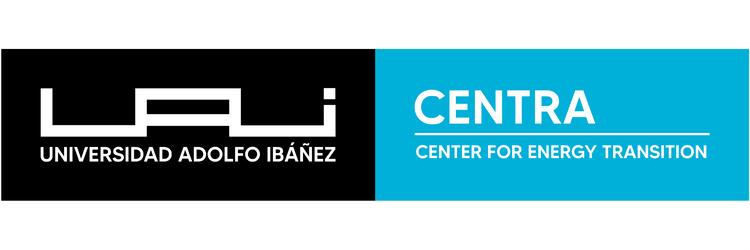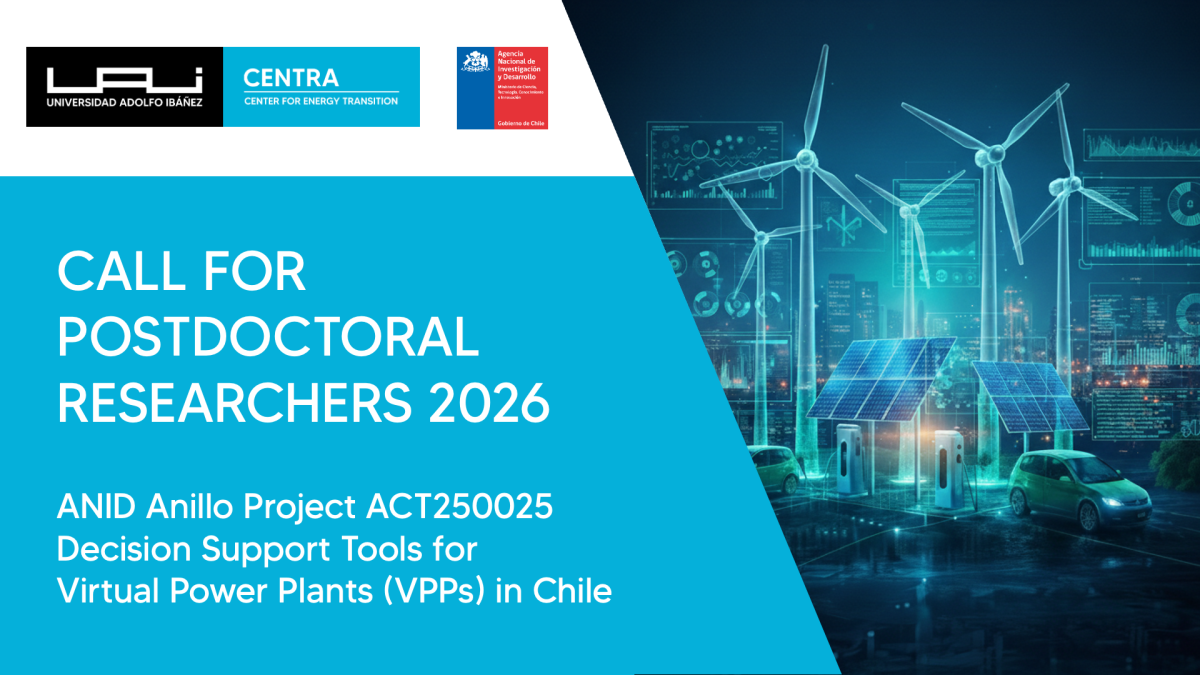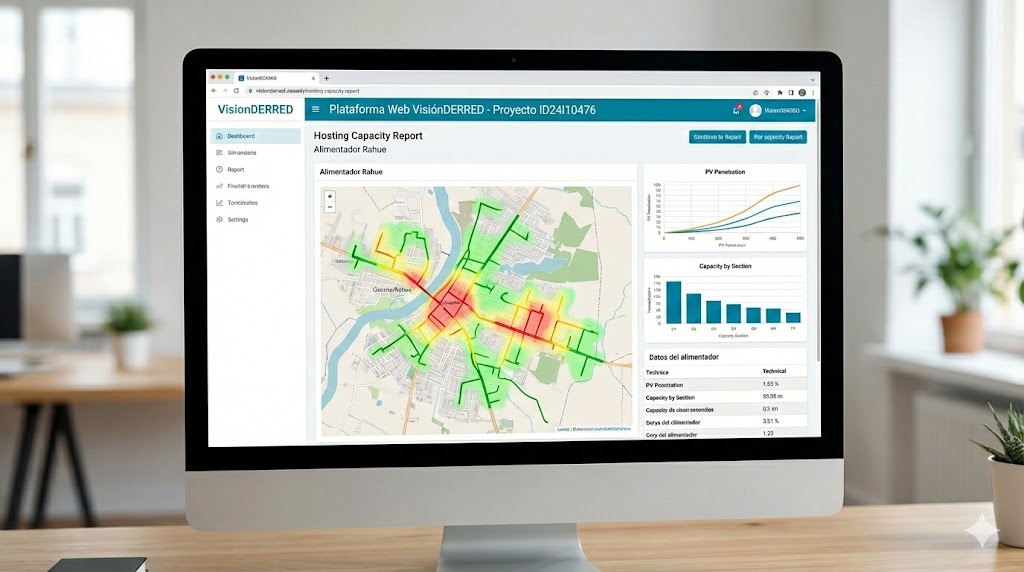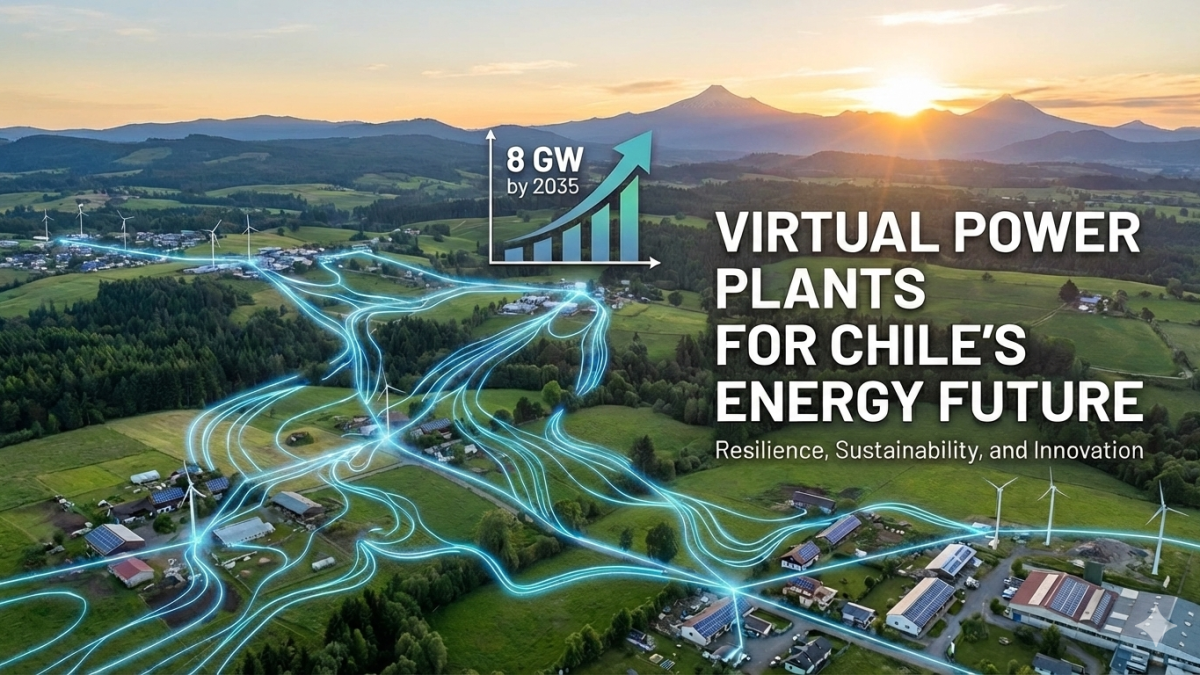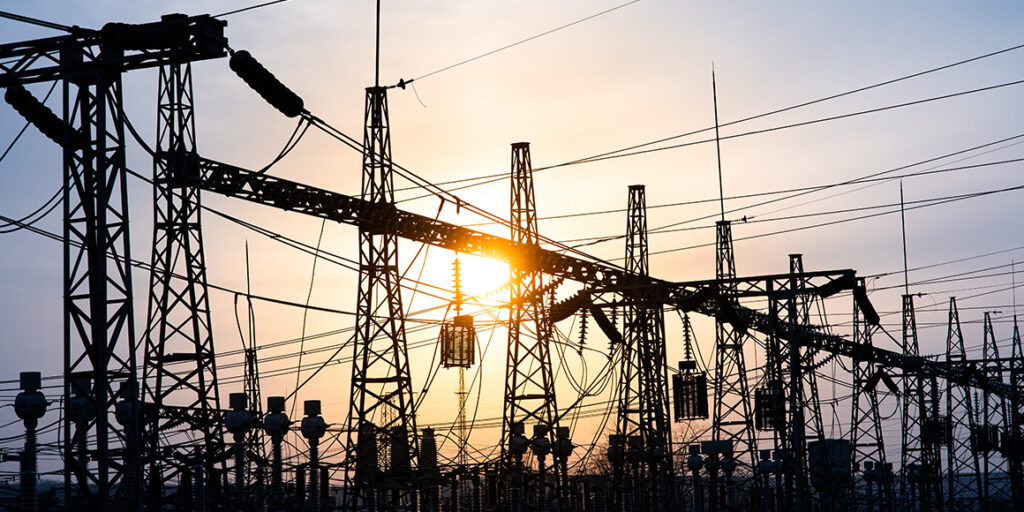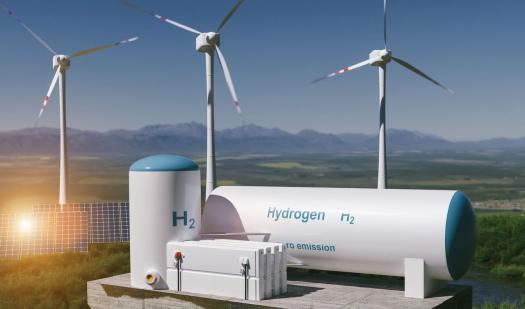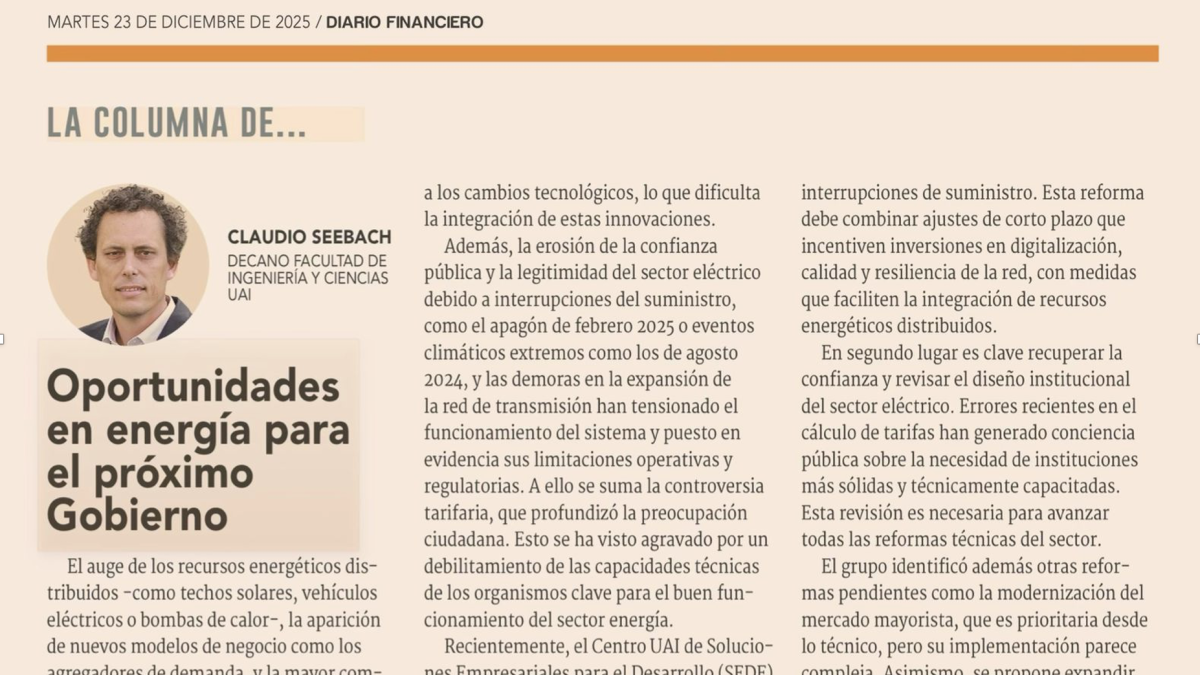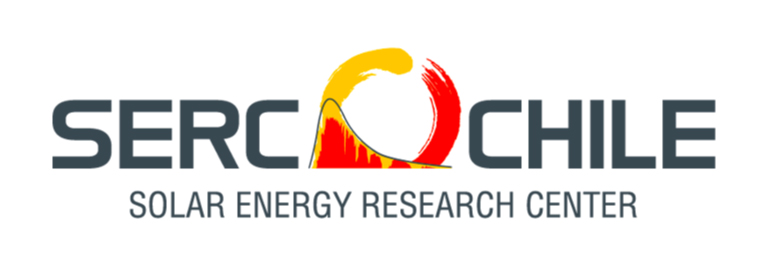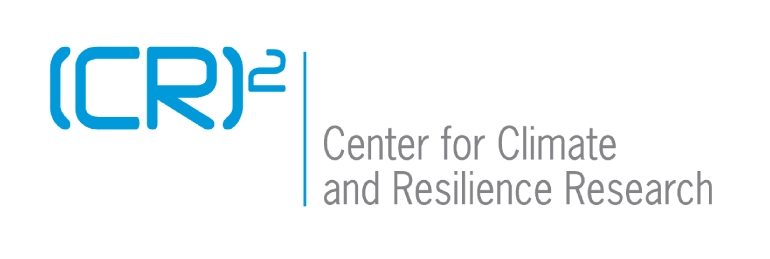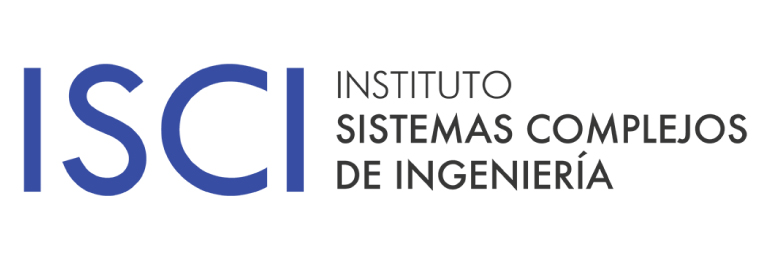The UAI Center for Energy Transition (CENTRA UAI) drives a cost-efficient, secure, socio-environmentally sustainable, and territorially just energy transition, through fundamental and applied, collaborative and interdisciplinary research, developing innovative tools for the public sector and industry.

We transform interdisciplinary research into innovative tools for the public sector, industry, and communities.
Research and Transfer Projects
Call for Applications: Postdoctoral Research Positions 2026
The UAI Center for Energy Transition (CENTRA) is a multidisciplinary research hub driving innovation to support the global transition toward sustainable energy systems. CENTRA focuses on research and development in clean fuels, sustainable energy supply, Industry 4.0, and tailored energy solutions for both urban and rural communities. (https://centra.uai.cl) We are currently inviting applications for Postdoctoral Researcher positions to contribute to the high-impact Anillo Project ACT250025:…
VisiónDERRED web platform for efficient integration of distributed energy resources
Project Identification Official Title: Web platform for distribution network analysis for the efficient integration of distributed energy resources (ID24I10476). Project Type: FONDEF IDeA R&D Project. Executing Institution: Adolfo Ibáñez University (UAI) / Energy Transition Center (CENTRA). Execution Period: May 2024 – May 2026. Partner Entity: Chilean Solar Energy Association AG (ACESOL). Platform Link (Dev): https://app-dev.visionderred.cl/ Status: In execution. Executive Summary The VisiónDERRED project aims to…
Virtual Power Plants (VPPs) for Sustainable and Resilient Energy Systems in Chile
Project Identification Official Title: Virtual Power Plants (VPPs) for Sustainable and Resilient Energy Systems in Chile. Project Type: Industrial Research Chair and Technology Transfer. Lead Institution: Center for Energy Transition (CENTRA), Universidad Adolfo Ibáñez. Execution Period: December 2024 – December 2025. Strategic Partner: SAESA Group. Status: Finalized (Phase 1). Executive Summary Chile is facing a decisive energy transformation, characterized by high renewable energy penetration and…
Recent News
Is Chile’s electrical grid prepared for the coming mass electrification?
January 29, 2026 Chile faces the challenge of adapting its electrical grids to increasing electrification driven by electromobility, climate control, and distributed generation, with room to make adjustments if action is taken proactively, according to an energy sector specialist. Bernardo Severino, head of Studies at the Center for Energy Transition at Adolfo Ibáñez University, stated that the current grids were designed for a centralized…
The uneven progress of green hydrogen projects
According to experts, a more viable path is to build the industry through smaller-scale projects and then expand toward the export of green fuels. While two green hydrogen projects in Chile aimed at supplying local industries have already received environmental approval and are moving forward toward implementation, the mega-projects seeking to export the green fuel abroad have encountered difficulties in advancing. Of the three green…
Energy Opportunities for the Next Government – Opinion Column, Claudio Seebach
December 23, 2025 The rise of distributed energy resources such as solar rooftops, electric vehicles, and heat pumps, the emergence of new business models like demand aggregators, and the increased competitiveness of technologies for electrifying and digitizing energy-intensive activities are redefining the sector. Although the electrification of transportation and heating is just beginning, it promises to transform energy management, giving consumers a leading role in…
